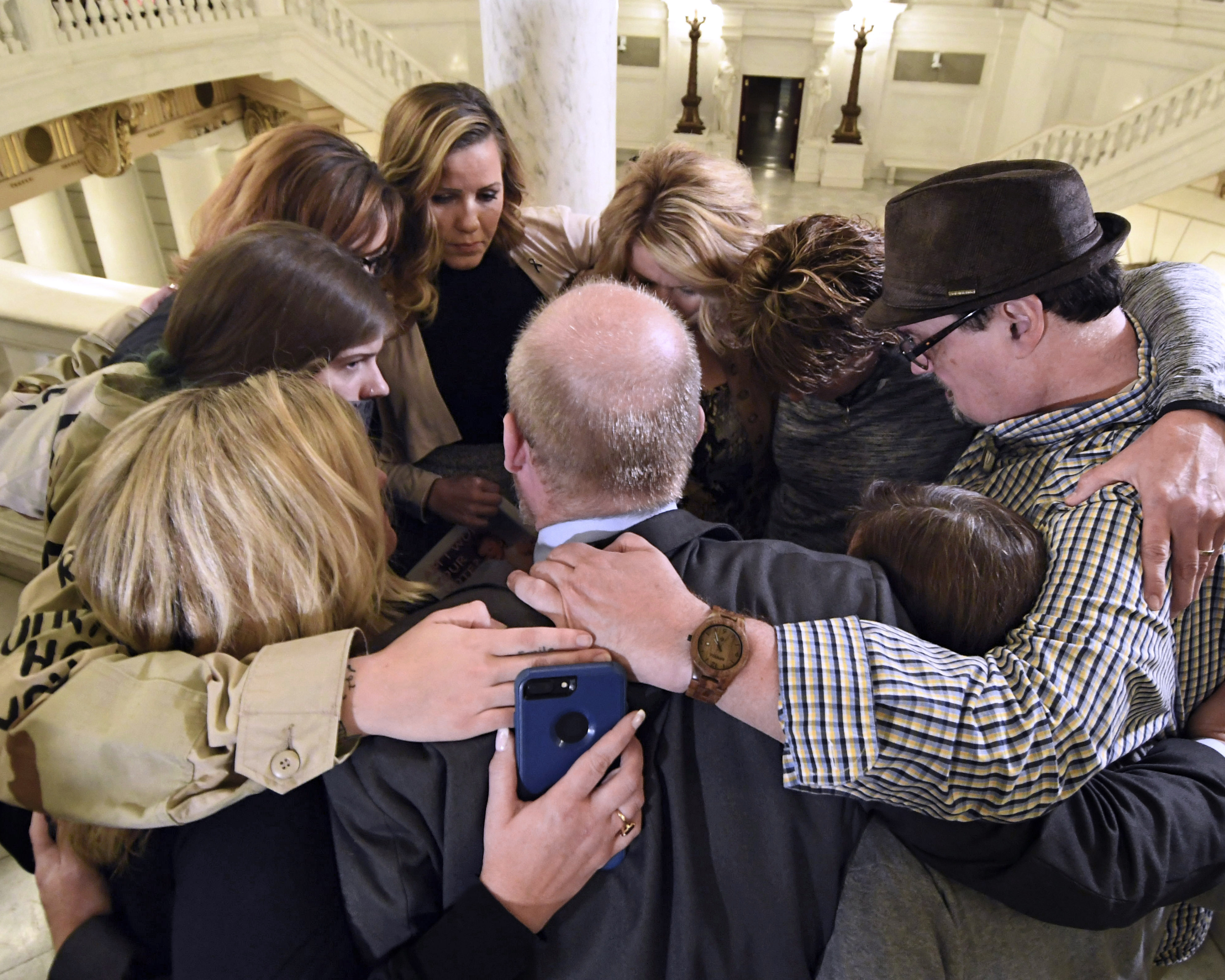
Church abuse victims wait to see if Legislature will act
HARRISBURG, Pa. (AP) — Lawmakers have returned to the Pennsylvania Capitol but have yet to revisit legislation on child sexual abuse scandals since an October fight killed a bill that would have allowed long-ago victims to sue the Roman Catholic Church and other institutions.
The Legislature’s new two-year session began in earnest Monday, with little mention of legislation reflecting the state attorney general’s landmark grand jury report on child sexual abuse in Pennsylvania’s Catholic dioceses.
No votes are scheduled and talks are low-key as Pennsylvania’s dioceses begin opening temporary victim compensation funds spurred by the grand jury report.
Continued deadlock in the Legislature raises the possibility that now-adult victims will have little option but to apply to a diocese compensation fund — and sign away their right to sue — even if lawmakers later approve legislation giving them another chance to sue.
John Delaney, who has told of his rape as a 12-year-old boy by a priest in the Philadelphia archdiocese, said several people he knows have received offers ranging from $180,000 to $375,000. Delaney, now 48, isn’t sure he would accept an offer if it means giving up the right to sue.
“It’s not about the money,” Delaney said. “It’s about holding people accountable for their actions. I want my day in court.”
Several other states have approved a window for time-barred victims to sue, and neighboring New York’s Legislature approved such a bill Monday.
For Delaney and many other victims in Pennsylvania, including those in the grand jury’s Aug. 14 report, state law ended their right to sue decades ago, when they turned 20.
Compensation funds are fine for some victims, victim advocates say. But, they say, they allow the church to control its own punishment, while some victims want the tools offered by a court to force dioceses to divulge what church officials knew about an abuser, and whether they covered it up.
Compensation funds promise a faster payout. Lawsuits take longer but promise bigger payouts, say veteran victims’ lawyers.
The grand jury recommended a two-year reprieve, and the bill included provisions to give future victims more time to sue and prosecutors more time to pursue charges.
The Republican-controlled state House of Representatives passed it overwhelmingly, and it had support from Attorney General Josh Shapiro, Democratic Gov. Tom Wolf and Senate Democratic leaders.
However, Catholic bishops and for-profit insurers opposed the two-year window, and a critical mass of the state Senate’s Republican majority blocked a floor vote on it.
The legislation collapsed .
Senate President Pro Tempore Joe Scarnati said he has no plans to restart legislation in his chamber and has had little contact about it since the debate stalled late at night Oct. 17.
“Nobody has picked up the phone to call me since I left here that Wednesday evening of session with a counterproposal,” Scarnati, R-Jefferson, said this month. “I have not received anything.”
The House now has a new majority leader, Rep. Bryan Cutler, R-Lancaster, who is not as friendly to a two-year window as his predecessor.
Cutler’s office said he is discussing a compromise bill with Shapiro’s office and other lawmakers.
Philadelphia’s archdiocese opened a fund in November, and the Pittsburgh and Scranton dioceses followed suit last week. The dioceses set a deadline of Sept. 30 to apply, and they require someone accepting an offer to forfeit their right to sue later.
The funds are modeled on a system adopted by five New York dioceses in the past two years as a debate raged there over allowing victims a window to sue.
New York’s diocese funds, using the same third-party administrator, awarded a maximum payout of $500,000 and an average of about $188,000.
Other dioceses in Pennsylvania are expected to set up something similar.
Scarnati said he is satisfied by how Pennsylvania’s dioceses have moved to set up compensation funds .
“I think we give that time, see how that goes and it can only be judged by the victims that participate in it,” Scarnati said. “And that will be the judgment.”
___
Follow Marc Levy on Twitter at www.twitter.com/timelywriter.
The Western Journal has not reviewed this Associated Press story prior to publication. Therefore, it may contain editorial bias or may in some other way not meet our normal editorial standards. It is provided to our readers as a service from The Western Journal.
Truth and Accuracy
We are committed to truth and accuracy in all of our journalism. Read our editorial standards.
Advertise with The Western Journal and reach millions of highly engaged readers, while supporting our work. Advertise Today.












